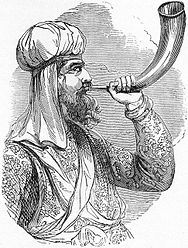Parashat Emor is the 31st weekly Torah portion in the annual Jewish cycle of readings. It is located in the book of Leviticus, and it provides a detailed set of instructions for the priests and Levites who serve in the Tabernacle and Temple. The portion also includes rules and regulations for the observance of various holy days and festivals.
The opening verses of Parashat Emor emphasize the importance of the priests maintaining a high level of holiness and purity. They are instructed to avoid contact with corpses, to abstain from certain foods, and to avoid other practices that may defile their purity. These commandments reflect the importance of the priests serving as role models for the people and maintaining a high level of spiritual purity.
The portion then moves on to a detailed discussion of the various festivals and holy days that are observed throughout the year. These include the Sabbath, Passover, Shavuot, Rosh Hashanah, Yom Kippur, Sukkot, and Shemini Atzeret. The portion outlines the specific rituals and offerings that are required for each holiday and emphasizes the importance of these observances in the life of the Jewish community.
One of the most important sections of Parashat Emor is the discussion of the holiday of Passover. The portion provides a detailed set of instructions for the observance of the holiday, including the requirement to eat matzah and abstain from leavened bread for the duration of the holiday. This section serves as a reminder of the importance of the Exodus from Egypt and the central role that Passover plays in Jewish history and tradition.
Another important section of Parashat Emor is the discussion of the holiday of Shavuot. This holiday commemorates the giving of the Torah at Mount Sinai and serves as a reminder of the importance of Torah study and the pursuit of knowledge. The portion emphasizes the importance of the study of Torah and the obligation to pass on this knowledge to future generations.
Overall, Parashat Emor provides a comprehensive set of instructions for the priests and Levites who serve in the Tabernacle and Temple. The portion emphasizes the importance of maintaining a high level of holiness and purity, as well as the importance of the various festivals and holy days that are observed throughout the year. The portion serves as a reminder of the central role that these observances play in Jewish tradition and underscores the importance of passing on these traditions to future generations.



















One Response